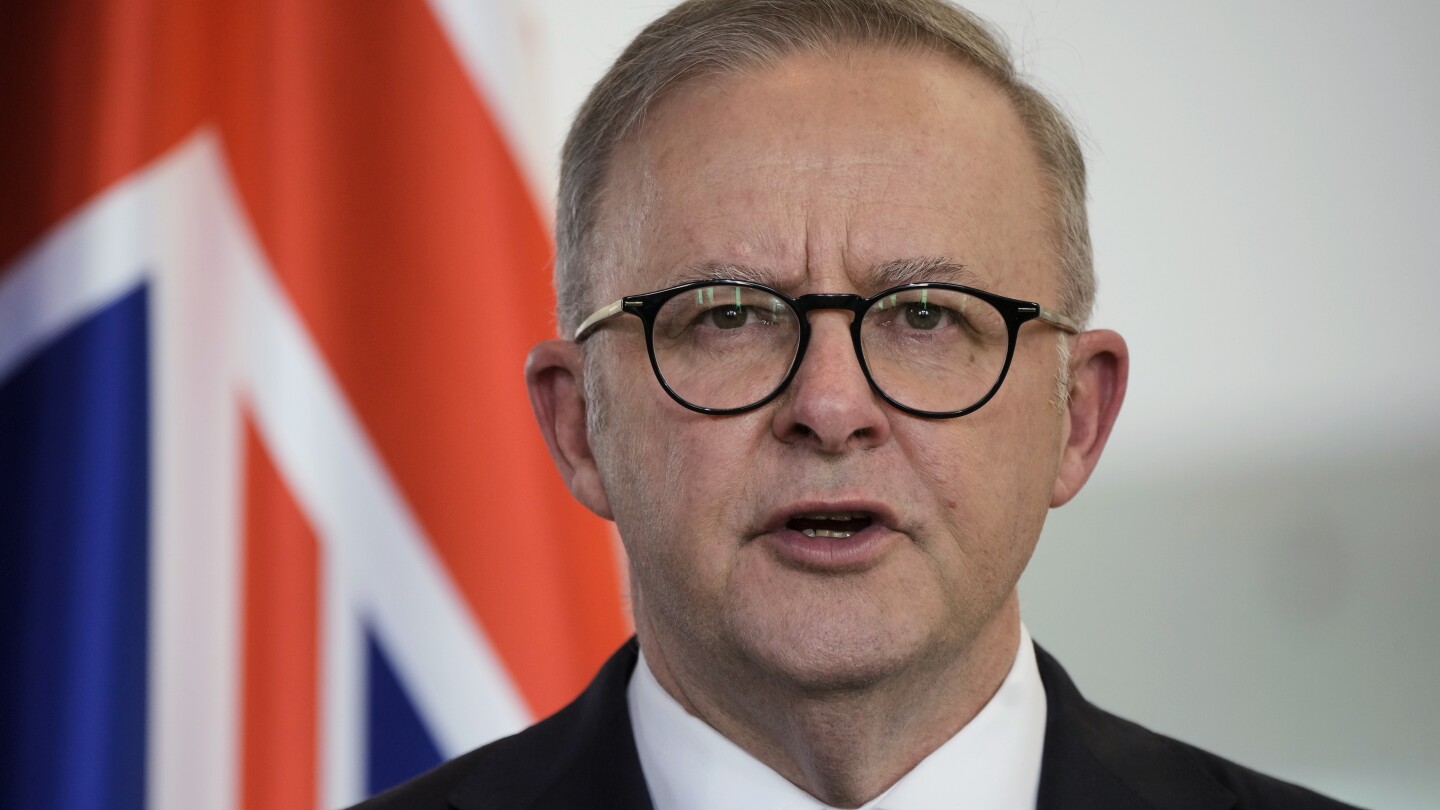CANBERRA, Australia (AP) — Anthony Albanese will make history as the first Australian prime minister in seven years to visit China. This visit signifies an improvement in bilateral relations, which had reached an all-time low due to unresolved trade and security differences.
Following nine years of conservative rule, Albanese’s center-left government presented an opportunity for a reset. He embarks on a three-day visit starting Saturday, with Shanghai and Beijing as his destinations, where he is scheduled to meet with President Xi Jinping.
In 2016, Xi had two meetings with an Australian prime minister. However, China broke off top-level ministerial contacts with Australia in response. Both official and unofficial trade sanctions have cost Australian exporters up to 20 billion Australian dollars ($13 billion) annually since 2020. The sanctions affected commodities such as coal, wine, beef, barley, and lobsters, highlighting the intertwining of business and politics in the bilateral relationship.
The trade boycott is believed to have negatively impacted China’s troubled economy, while Australia remained steadfast against Beijing’s coercion.
Albanese stated last month that he believes it is in Australia’s best interest to maintain good relations with China. However, his government is also strengthening security ties with the United States, most notably through the AUKUS agreement that involves Britain and provides Australia with a fleet of submarines powered by U.S. nuclear technology.
Although no significant announcements are expected during Albanese’s symbolic visit, it does coincide with the 50th anniversary of the first visit by an Australian prime minister to the People’s Republic of China.
His itinerary includes attending the opening of the China International Import Expo in Shanghai and meetings with Xi and Premier Li Qiang in Beijing.
Shi Yinhong, an international relations professor at Beijing’s Renmin University of China, asserted that China aims to improve trade relations after a “largely ineffective de facto boycott.”
Shi also noted that while some trade barriers have been lifted, Australia remains optimistic that crippling wine tariffs will be removed within a few months. The wine trade alone was valued at AU$1.2 billion ($771 million) annually.
Shi mentioned that Australia’s initial missteps in China’s eyes occurred in 2018 when it enacted national security legislation banning covert foreign interference in domestic politics and prohibited Chinese-owned telecommunications giant Huawei from implementing its 5G network in Australia due to unspecified security concerns.
China retaliated with trade barriers following Australia’s call for an independent inquiry into the origins of COVID-19 and its criticism of China’s response to the pandemic. China accused Australia, along with the U.S. and others, of “politicizing” the issue.
Albanese assured that no concessions were made to China to improve relations, highlighting the recent release of Australian journalist Cheng Lei after three years of detention over state secrets.
However, shortly before announcing his planned trip, the Albanese government decided not to cancel a 99-year lease on Darwin Port held by a Chinese company, despite U.S. concerns about potential spying on military forces.
Australia is striving to strike a balance between security concerns and the need for a peaceful region and productive economic ties with China, similar to Japan and South Korea, according to Jude Blanchette, a China expert at the Center for Strategic and International Studies in Washington.
Blanchette highlighted the growing discussion of “de-risking” in Australia, which refers to reducing dependence on one country economically. This shift is likely to be a concern for China during the talks.
He stated, “The Australians still want a strong trading relationship with China, but capital and technology will also be realigned to other markets.”
Australia’s efforts to diversify trade away from China, its largest trading partner, have faced obstacles. Negotiations for a free trade deal with the European Union recently collapsed, despite Europe’s interest in accessing Australia’s critical minerals and rare earths to reduce reliance on China.
Meanwhile, Australian Trade Minister Don Farrell expects the cost of “trade impediments” with China to decrease from a peak of AU$20 billion ($13 billion) annually to AU$1 billion ($643 million).
Despite the political tensions between Beijing and Canberra since the last Australian prime minister’s state visit, the value of Australian goods and services exported to China has more than doubled, according to James Laurenceson, director of the Australia-China Relations Institute at the University of Technology Sydney.
Government data reveals that annual exports for the year to August were valued at AU$194 billion ($125 billion), compared to AU$96 billion ($71 billion at the previous exchange rate, $62 billion at the current rate) for the same period in 2016.
Wang Yiwei, an international relations professor at Renmin University, emphasized that China desires stable diplomatic relations with Australia to support economic ties. He stated, “China still hopes that there will be a proper distinction between security and economy.”
___
Associated Press writers Ken Moritsugu in Beijing and Christopher Bodeen in Taipei, Taiwan, contributed to this report.
___
Find more AP Asia-Pacific coverage at https://apnews.com/hub/asia-pacific


